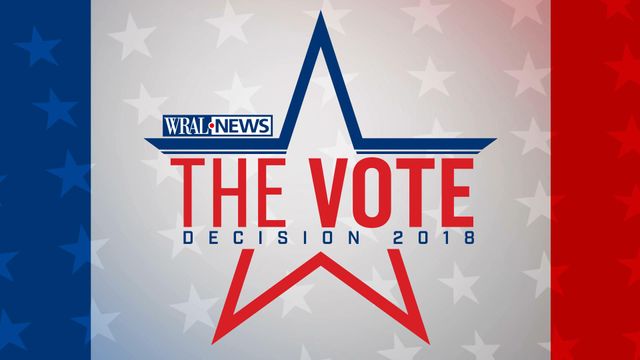NC Democrats, GOP accuse each other of breaking rules involving outside political groups
Ad money from outside groups is pouring into North Carolina this fall to back or oppose candidates for Congress, the General Assembly and the state Supreme Court, including millions of dollars from anonymous sources who want to influence voters.
Posted — UpdatedBy law, those groups aren't allowed to coordinate with candidates, but that's exactly what both major parties say the other side is doing.
The North Carolina Democratic Party filed a complaint this week against Carolina Leadership Coalition after, Democrats say, the group did a lot of expensive research to help state House Republicans and posted it all online so GOP candidates could download it and use it for free.
"[It was] everything from polling to messaging to attacks to even what constitutional amendments to put on the ballot," Democratic Party spokesman Robert Howard said. "I think that shows this Republican Party will do anything to hold on to power."
Carolina Leadership Coalition treasurer Victor Edwards declined to comment. Collin McMichael, the treasurer of the North Carolina House Republican Caucus Campaign Committee, didn't respond to requests for comment.
Meanwhile, the North Carolina Republican Party filed a complaint against Democratic Supreme Court candidate Anita Earls and outside group NC Families First. Party executive director Dallas Woodhouse said Earls' campaign made a video and posted it online so the group could download it and pay to run it as a commercial.
"We follow the law, and we wish they would too," Woodhouse said.
"We are running a campaign that blends strong grassroots organizing with modern communications, including promoting ads online," Caroline Spencer, a spokeswoman for Earls' campaign, said in an email. "We have no control over what third parties choose to do independently with our ads, which tell the story of a candidate who will work to ensure an independent judiciary that is fair to all."
"The NCGOP needs to have its attorneys review their complaints before they file and before they run to every news outlet across the state," Michael Weisel, the treasurer of NC Families First, said in an email. "Even if every factual statement in their complaint were accurate, which they are not, there are no election law violations."
Campaigns and outside groups are not allowed to coordinate, but it's not unusual for them to do work and then post it online for others to use. Unless they discussed it first, that's not technically coordination.
"Folks are continuing to push the envelope. Our campaign finance laws are a little bit confusing," said Jonathan Kappler, executive director of the North Carolina Free Enterprise Foundation. "State and federal laws on this can leave some gray areas that groups will sometimes work to exploit."
Third-party money is easier to raise and harder to track. Both of these cases involve political action committees that got huge sums of money from other groups who don't have to report their donors upfront. That means voters won't know before Election Day, if ever, who paid to influence them.
Related Topics
• Credits
Copyright 2024 by Capitol Broadcasting Company. All rights reserved. This material may not be published, broadcast, rewritten or redistributed.






